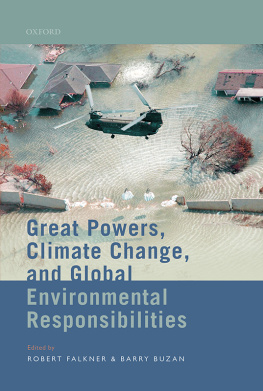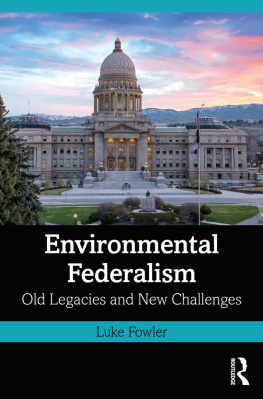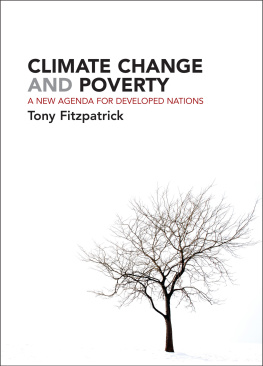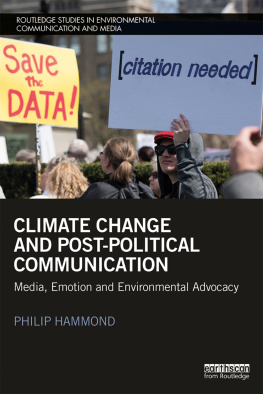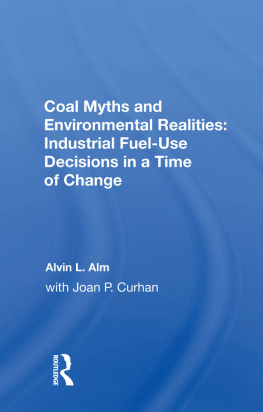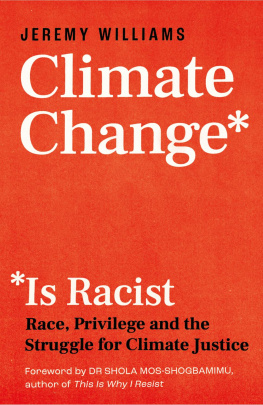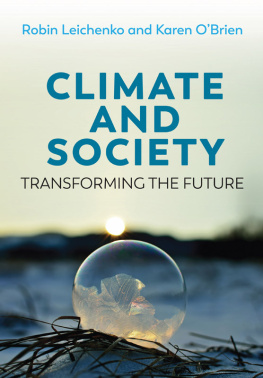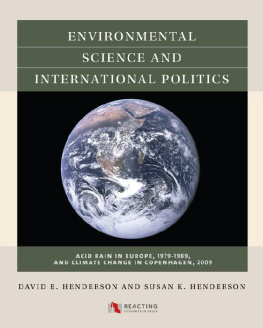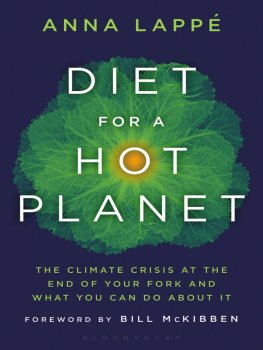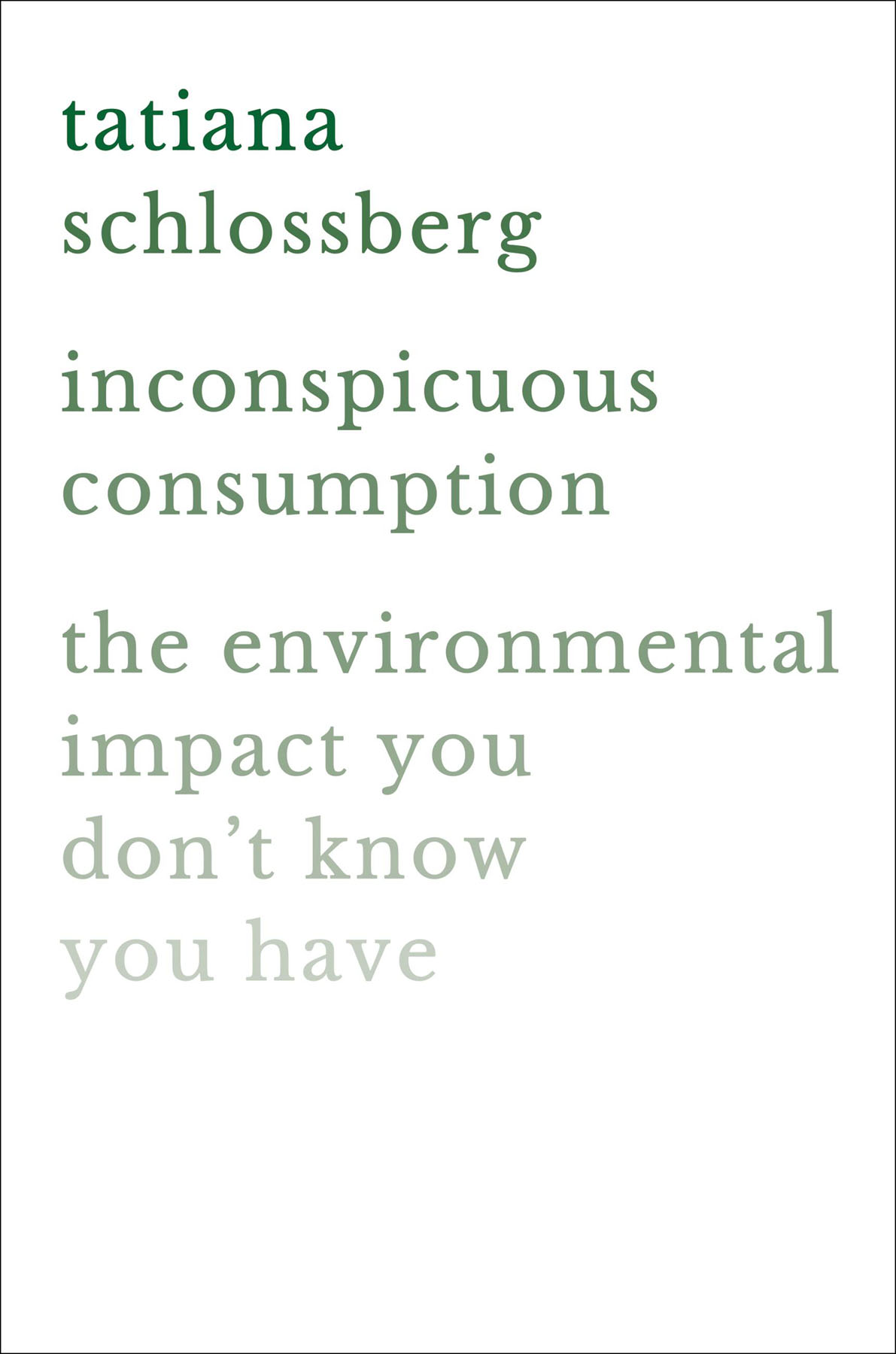Copyright 2019 by Tatiana Schlossberg
Cover design by James Paul Jones
Cover copyright 2019 by Hachette Book Group, Inc.
Hachette Book Group supports the right to free expression and the value of copyright. The purpose of copyright is to encourage writers and artists to produce the creative works that enrich our culture.
The scanning, uploading, and distribution of this book without permission is a theft of the authors intellectual property. If you would like permission to use material from the book (other than for review purposes), please contact permissions@hbgusa.com. Thank you for your support of the authors rights.
Grand Central Publishing
Hachette Book Group
1290 Avenue of the Americas, New York, NY 10104
grandcentralpublishing.com
twitter.com/grandcentralpub
First edition: August 2019
Grand Central Publishing is a division of Hachette Book Group, Inc. The Grand Central Publishing name and logo is a trademark of Hachette Book Group, Inc.
The publisher is not responsible for websites (or their content) that are not owned by the publisher.
The Hachette Speakers Bureau provides a wide range of authors for speaking events. To find out more, go to www.hachettespeakersbureau.com or call (866) 376-6591.
Library of Congress Cataloging-in-Publication Data
Names: Schlossberg, Tatiana, author.
Title: Inconspicuous consumption : the environmental impact you dont know you have / Tatiana Schlossberg.
Description: First edition. | New York : Grand Central Publishing, 2019. | Includes bibliographical references. | Summary: As we become a more digital society, the gains that have been made for the environment by moving toward a paperless world with more and more efficient devices will soon be or already have been offset by the number of devices in our lives that are always using energy. But many dont think about the impact on the environment of the Internet of things. Whether its a microwave connected to the internet, use of Netflix, or online shopping, these technological advances have created new impacts that the people who are most well-versed in these issues havent considered. In INCONSPICUOUS CONSUMPTION, Tatiana Schlossberg reveals the complicated, confounding and even infuriating ways that we all participate in a greenhouse gas-intensive economy and society, and how some of the biggest and most consequential areas of unintended emissions and environmental impacts are unknowingly part of our daily activities. She will empower people to make the best choices that they can, while allowing them to draw their own conclusionsProvided by publisher.
Identifiers: LCCN 2019007474 | ISBN 9781538747087 (hardcover) | ISBN 9781538747094 (ebook)
Subjects: LCSH: Consumption (Economics)Environmental aspects. | Consumer behaviorEnvironmental aspects. | LifestylesEnvironmental aspects. | Environmental responsibility.
Classification: LCC HC79.C6 S258 2019 | DDC 363.7dc23
LC record available at https://lccn.loc.gov/2019007474
ISBNs: 978-1-5387-4708-7 (hardcover), 978-1-5387-4709-4 (ebook)
E3-20190718-JV-NF-ORI
To all of the climate scientists, environmental lawyers, activists and advocates, for their help and for not giving up
And to my family
When we think about climate change, melting polar ice caps, hurricanes, or forest fires might be the first things that come to mind. If we think a little longer, we might get all the way to renewable energy, greenhouse gas emissions, or coal. Much lower down on the list, if it comes up at all, is average, everyday, run-of-the-mill stuff, including literal stuff: a pair of jeans, a hamburger, Netflix, an air-conditioner.
But those four things, and many others, should be much higher on the list. In fact, almost everything we do, use, and eat in the United States (and much of the rest of the world) has a lot to do with climate change and the environment, because of the way we use resources, create waste, and emit greenhouse gases without even thinking about it.
Thats why I wanted to write this book: the physical things we interact with every day and lots of our daily activities dont exist in a vacuumtheyre much more connected to each other, to global climate change, and to each one of us than we think.
The story of climate changeand all of our stuffis actually a story about everything: science, health, injustice, inequality, national and international politics, the natural world, business, normal life. Climate change affects everyone constantly, but, until very recently, we usually only talked about it for a few days when some natural disaster happened or a particularly scary report by government scientists came outif thenbefore we moved on to something else. Really, we should be talking about it all the time. But its scary, and even though its an existential crisis facing humanity, it doesnt always seem to connect to our lives, so we havent talked about it nearly enough.
Let me back up for a second: before I became a climate change and environmental journalist, I understood in broad strokes what climate change was and why it was happeningthat transportation, industry, agriculture, and electricity generation all involve processes that result in the emissions of carbon dioxide or other greenhouse gases, which trap heat in the atmosphere, causing the overall surface temperature of the planet to increase. This leads to the melting of the polar ice caps and the rise in sea level, stronger storms, drought, forest fires, flooding, etc. I knew that there were other kinds of pollution that created environmental problems, like ocean plastic and acid rain. But I didnt seek out too much more information. I didnt like reading about climate change and its effectsit filled me with dread and made me feel powerless. The problems seemed too big and too inevitable for me to do anything about, so it felt like it was probably best to look away. Intellectually, I recognized that climate change is the most important issue in the world. Pretending it wasnt happening wouldnt make it go away, so eventually I thought I should probably learn more about it, and I was lucky that the editors at the New York Times thought I was up to the challenge.
But it also became pretty clear to me as I started reporting and writing about climate change and the environment that there was so much left out of the conversation, including what might make the issues relatable. Plus, articles about climate change can be really boring. Even I think theyre boring! They tend to be incredibly technical or presume that we all have a lot of background knowledge and context, which we dont necessarily. And thats too bad, because these issues are actually really interesting. Sure, theyre complicated, but they connect to each other and to us in lots of surprising and fascinating ways.
I also noticed that it was really hard to bring climate change down to scale, to make sense of it within the context of our own lives, and to get a sense of how our habits and the products we use affect the environment. I started thinking: What kinds of things am I doing or buying without thinking about where they come from or what kind of impact they have? How have our habits and our expectations changed over time, maybe generating more waste or encouraging more consumption? What do I notice myself and other people doing that seems wasteful but appears to happen without a second thought?
I thought about how watching TV and movies is so different now from when I was little, when a show was on once a week, and if you missed it, the best you could hope for was a rerun someday. Now, I can watch a whole series in one sitting on my laptop, and streaming online videos is something that many of us probably take for granted. Maybe we think about the electricity needed to power our laptop, but we probably dont consider that going online itself uses electricity, which often comes from fossil fuels. In the US, we still get about one-third of our electricity from coal, so streaming your online video may be coal-powered; the by-product of burning that coal is coal ash, one of the largest industrial solid-waste streams in the country, which is largely under-regulated and can end up polluting groundwater, streams, lakes, and rivers across the country. As crazy as this might sound, it means that watching your favorite episode of


